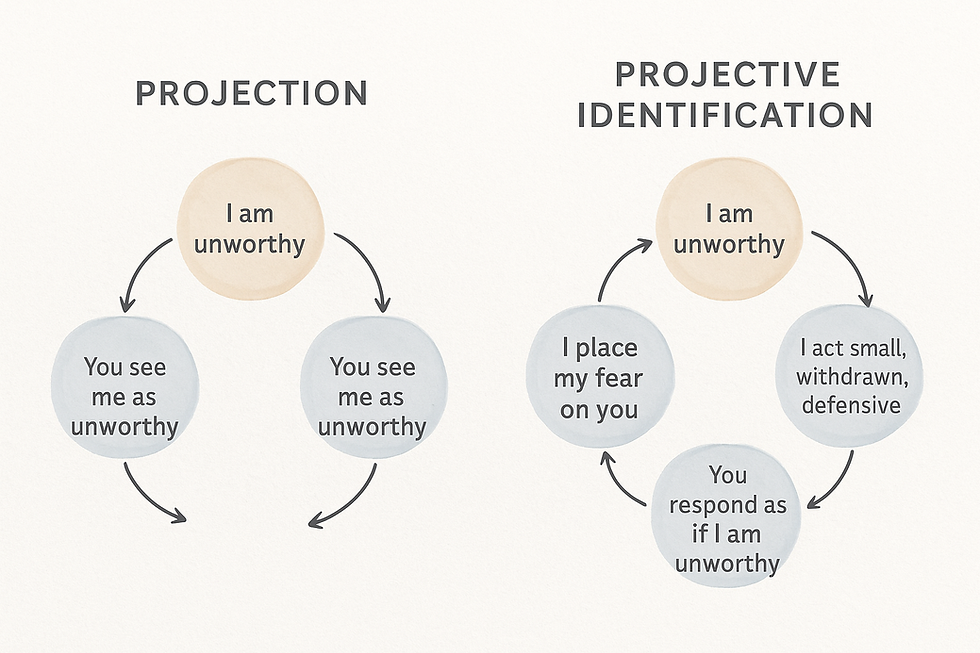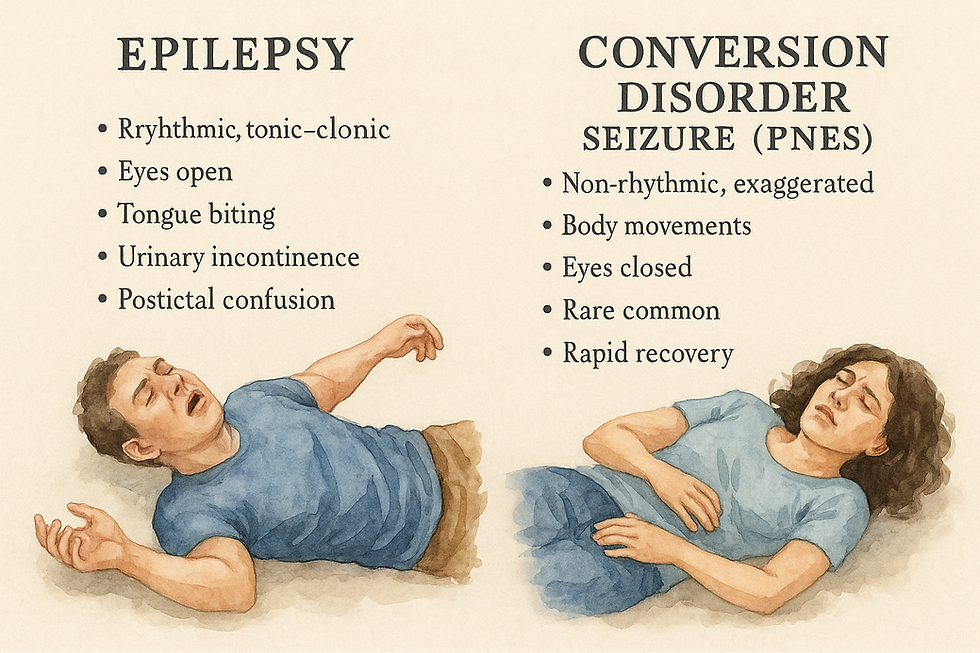Am I a Narcissist? Let’s Untangle the Knot
- Aug 14
- 4 min read
Years ago, I found myself stuck in this loop: “Am I a narcissist?” The more I read about narcissistic traits and Narcissistic Personality Disorder (NPD), the more my mind kept circling back, trying to diagnose myself. If you’ve ever been in that space, you know it’s exhausting.
Let’s slow this down. Let me walk you through what narcissism truly is — where the word comes from, what Freud actually said, how psychology defines it today, and how to tell the difference between self-awareness and true narcissism.
The Origin of the Word “Narcissism”
The word comes from Greek mythology — the story of Narcissus, a beautiful young man who rejected every lover and became so enchanted by his own reflection in a pool of water that he wasted away. This myth, written down by the Roman poet Ovid in Metamorphoses, became a metaphor for self-obsession.
Fast-forward to the late 19th and early 20th centuries: Sigmund Freud wrote about narcissism in his 1914 essay On Narcissism: An Introduction. He described it as a normal stage of human development — babies begin life entirely self-focused — but explained that in adulthood, extreme narcissism could become pathological. Freud linked it to how we distribute our “libido” (life energy) between ourselves and others. Too much turned inward, and relationships suffer.
“The individual’s first love-object is himself; the libido… is directed towards the ego.”
Psychology’s Actual Use of the Word
Today, in clinical psychology, “narcissism” can mean two things:
Trait narcissism – personality tendencies like confidence, ambition, or self-focus (which everyone has to some degree).
Narcissistic Personality Disorder (NPD) – a diagnosable condition defined in the DSM-5 by patterns like grandiosity, lack of empathy, and exploitation of others.
NPD is not diagnosed simply because someone likes attention or takes selfies. It’s about pervasive, rigid patterns of behavior that harm others and resist change.
The DSM-5 lists nine criteria. To qualify for NPD, a person must consistently show at least five of these, such as:
A grandiose sense of self-importance
Preoccupation with fantasies of unlimited success or beauty
Belief they are “special” and should only associate with certain people
A need for excessive admiration
A sense of entitlement
Interpersonally exploitative behavior
Lack of empathy
Envy of others or belief others envy them
Arrogant behaviors or attitudes
Notice: liking attention, being dramatic, or enjoying your reflection is not the same thing.
I Am NOT a Narcissist If…
I think about myself sometimes.
I like attention, but it doesn’t erase others’ worth.
I enjoy looking in the mirror.
I can be demanding or dramatic in moments.
I sometimes act self-centered.
These are human traits, not pathology. The difference is in empathy and intention. If you care about how your actions affect others, you’re already far from the rigid, empathy-starved patterns of NPD.
Signs You’re on the Receiving End of Narcissistic Dynamics
If you’ve been targeted by narcissistic behavior, you may notice patterns in yourself such as:
Persistent self-doubt, questioning your memory or perception
Feeling emotionally drained or “smaller” after interactions
A drop in self-worth or confidence
Apologizing often, even when you’ve done nothing wrong
Avoiding conflict out of fear of escalation
Second-guessing your decisions or feelings
Anxiety or hyper-vigilance in the relationship
Isolation from supportive friends or family
A sense that you’re “never enough,” no matter what you do
These reactions are common in survivors of narcissistic abuse — and they are symptoms of manipulation, not proof that you are the narcissist.

The Trap of Projection
One hallmark of narcissistic abuse is projection — accusing you of what they’re actually doing. If they’re selfish, they’ll call you selfish. If they’re manipulative, they’ll insist you are the manipulator.
Freud called projection “the transference of one’s own unacceptable desires or feelings onto another person.” It’s a psychological smoke screen, and if you’ve been in a relationship with a narcissist, you’ve probably felt its sting.
The Reader’s Test
If reading this makes you defensive, furious, vengeful, or uncomfortable — and you find yourself wanting to discredit the entire idea — there’s a possibility you’re protecting a narcissistic pattern.
If you feel seen, understood, or relieved — if things suddenly click into place — then it’s far more likely you’ve been on the receiving end of narcissism.
The Real Dividing Line: Empathy
Freud hinted at this in his work, noting that pathological narcissism leaves “the object-choice… abandoned” — meaning the person’s love for others becomes secondary to self-love.
A narcissist without empathy sees people as tools.
A non-narcissist with empathy sees people as people.
Closing Note
If you’ve been caught in the “Am I a narcissist?” loop, remember this — true narcissists rarely ask themselves that question. The fact that you’re reflecting, researching, and even doubting yourself is proof you carry something they lack: empathy. And empathy is the one thing they cannot fake for long.
The difference is clear
If you are being devalued, demeaned, and made to doubt your reality — you are vulnerable to narcissistic abuse or you may be programmed by your narcissist parent to serve them or else feel guilty for having fun or living your life. No doubt, you are not the narcissist.
A narcissist will interpret all these patterns as self, with a sense of grandiosity, unshakable confidence, and an idol-like demeanor. You, on the other hand, will feel not enough, believe everyone likes them, and think you’re the one who needs to change.
Narcissists are often charming, gathering enablers and “flying monkeys” who amplify their image while isolating you. Remember - If collecting votes for validation made someone right, then Hitler would have been right.
If you doubt, no doubt — you are not a narcissist.




Comments